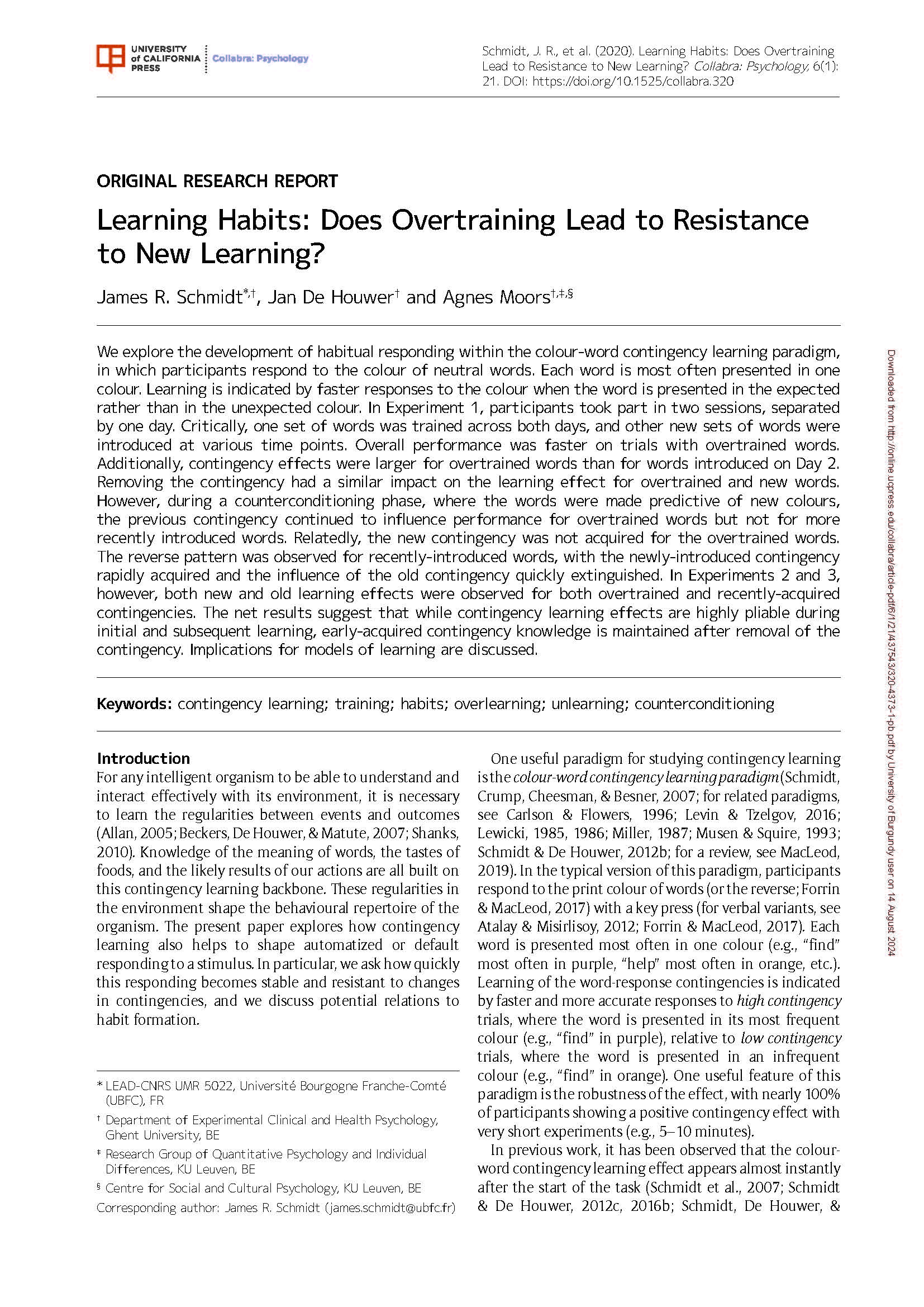We explore the development of habitual responding within the colour-word contingency learning paradigm, in which participants respond to the colour of neutral words. Each word is most often presented in one colour. Learning is indicated by faster responses to the colour when the word is presented in the expected rather than in the unexpected colour. In Experiment 1, participants took part in two sessions, separated by one day. Critically, one set of words was trained across both days, and other new sets of words were introduced at various time points. Overall performance was faster on trials with overtrained words. Additionally, contingency effects were larger for overtrained words than for words introduced on Day 2. Removing the contingency had a similar impact on the learning effect for overtrained and new words. However, during a counterconditioning phase, where the words were made predictive of new colours, the previous contingency continued to influence performance for overtrained words but not for more recently introduced words. Relatedly, the new contingency was not acquired for the overtrained words. The reverse pattern was observed for recently-introduced words, with the newly-introduced contingency rapidly acquired and the influence of the old contingency quickly extinguished. In Experiments 2 and 3, however, both new and old learning effects were observed for both overtrained and recently-acquired contingencies. The net results suggest that while contingency learning effects are highly pliable during initial and subsequent learning, early-acquired contingency knowledge is maintained after removal of the contingency. Implications for models of learning are discussed.
Learning habits: Does overtraining lead to resistance to new learning?
